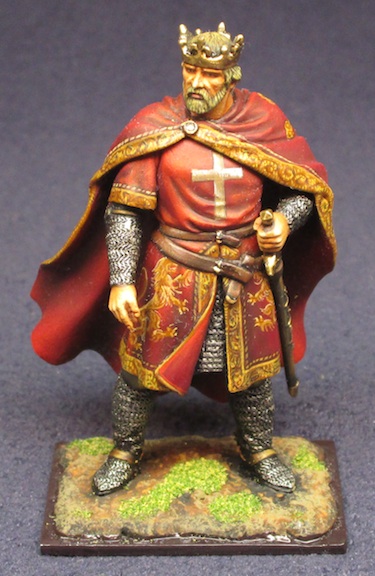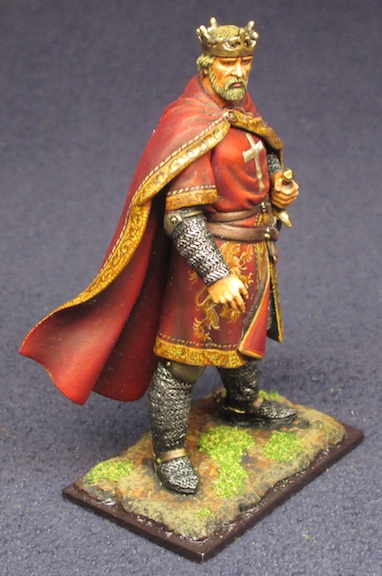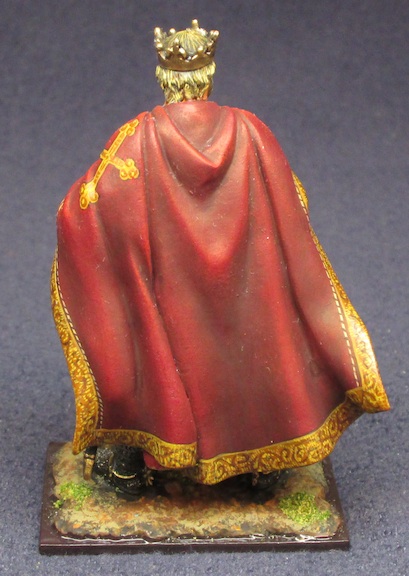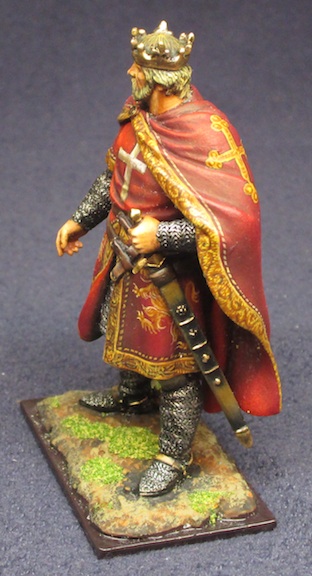Henry II, King of England


Son of Geoffrey Count of Anjou and his wife Matilda, widow of Emperor Henry V, Henry would become a strong and consequential king.
Henry inherited territories in France that included Normandy, Brittany, Anjou and others, which substantially increased with Henry's marriage to the divorced wife of Louis VII of France, Eleanor of Aquitaine.
England prospered during his reign as Henry improved and stabilized government and worked to strengthen the legal system. Henry insisted that the sole arbitrator of justice was the crown's government. The powerful Roman Church, however, denied king's authority over any of the Church's clergy or property.
Henry nominated his friend and Chancellor, Thomas Becket as Archbishop of Canterbury on the premise that this appointment would mitigate his problems with the Church. Instead, once in office, Becket jealously applied cannon law creating greater interference to Henry's secular approach to the rule of law.
Henry's later years were rife with problems. He was continually at war with Louis VII of France's incursions into his territories. Additionally the murder of Becket by some of Henry's knights and Becket's subsequent canonization by the Pope caused Henry even greater distress.
However, Henry's greatest difficulty in his waning years was the rebellion to this authority by his sons, who were encouraged by his wife Eleanor. Henry died in France in 1189 and was succeeded by his son Richard the Lionheart.



 Up
Up